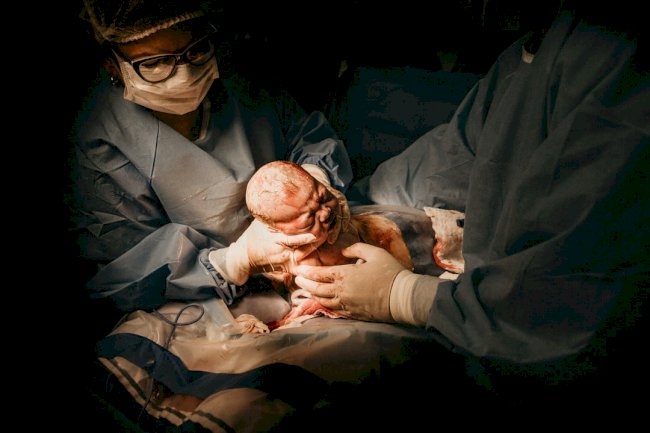Can Crooked Teeth Hurt My Heart?
Have you ever had a sore neck after exercising your arms? Developed low back stiffness after stubbing your toe? Maybe you’ve had a mentally taxing day and you experience stomach pains that seem to arise from nowhere. There’s a rational explanation for these phenomena, which is that what happens in one part of our body can potentially impact other bodily systems, as well.

Additionally, our bodies sometimes give us conflicting messages in which we recognize there’s a problem, but we have trouble figuring out exactly where it’s originating. Fitbay is an excellent resource for answers to all of your health questions, so look no further for tips on building a healthy lifestyle through diet and exercise.
Fixing Crooked Teeth
When it comes to correcting misaligned teeth, your first concern might be the price. However, It costs less than you might think to fix your teeth, and if your teeth are mild to moderately crooked, you can utilize at-home treatment options to help you save money. Byte, for instance, costs much less than other at-home programs like Invisalign, and you also achieve results in about three months. If you’re concerned about going through this process without a trip to the dentist, don’t be; a remote team monitors your progress and answers any questions you may have. Of course, if your teeth are severely crooked, you may need treatment that only a dentist or an orthodontist can provide.
The Mind-Gut Connection
In the case of experiencing digestive issues when you’re stressed, according to Rady Children’s Hospital, the intestines and stomach actually have something called the enteric nervous system in which nerves respond to stress hormones. Not only does mental and emotional stress give you a stomach ache, the stress itself actually makes the pain feel more intense, creating a vicious cycle. While your first instinct may be to take an antacid, taking a naturopathic approach may also have its benefits. A cup of chamomile tea and some relaxed breathing or meditation can allow you to destress and help alleviate pain.
Dental Pain and Heart Disease
Wait, the heart and teeth are connected? They actually are, in a roundabout way. In fact, dental issues can result in a host of physical problems. According to Medical News Today, untreated dental abscesses or infections that arise from poorly cleaned and misaligned teeth can result in bone infection (osteomyelitis), sinus infections, or even sepsis (an infection of the blood). Misaligned teeth can also break or crack, resulting in severe jaw, mouth, and neck pain.
What You Eat and Drink
The things you eat and drink can lead to physical symptoms that are directly connected but can be tricky to identify. For example, dehydration means you’re lacking adequate fluid intake. But in addition to the common “being thirsty” symptom, dehydration can also result in dizziness or dark urine — symptoms that can be scary when you don’t know where they originate. If you have esophageal reflux, you could have extreme burning in your throat and upper gastrointestinal tract when you eat acidic or spicy foods. Sometimes the symptoms are so severe, they mimic a heart attack. If you begin noticing physical symptoms connected to what you ingest, keep a record of your experience and talk to your doctor. A change of diet or acid reflux medication may help alleviate the issue.
Too Much or Not Enough Sleep
If you don’t get adequate sleep, you may experience symptoms like dizziness, confusion, or disorientation. This can be unnerving when you’re unaware of the cause. Likewise, if you find yourself sleeping too much and feeling down, you may be suffering from depression. Sometimes things like hormonal fluctuations, sleep apnea, and restless leg syndrome impact rest without us even knowing it. Keep a sleep and activity journal, and try to have regular sleep and wake times. Recognizing your patterns can help you sleuth out the potential causes of disturbed sleep patterns.
Aching Bones and Joints
Feeling “achy” can have a number of origins, including injury, over-exertion, arthritis, fibromyalgia, obesity, or depression. Pay attention to whether pain has a rapid onset or is gradual and if it varies with rest or activity. Some aches and pains are normal with aging or with starting a new exercise routine, but they can also be underlying symptoms of more serious issues. You may need to increase your intake of calcium and vitamin D or start a new exercise regime or diet aimed at improving bone density.
Running Hot or Cold
Many people think they are simply warm or cold-blooded by nature, but in most cases, having unusual temperature swings can be related to health issues. For example, feeling warm could be a sign of menopause, fever or infection, a thyroid condition, or insulin resistance. Feeling cold and clammy could be a sign of influenza, diabetes, vitamin deficiency, or anemia — a condition in which your hemoglobin levels are unusually low due to abnormal blood loss.
Medication Reactions
Anyone who has ever taken medication, particularly a prescription med, knows the list of possible side effects can be lengthy and confusing. However, it’s important to recognize the danger signs and symptoms associated with medications, particularly ones that have the potential to impact your breathing or your heart rate. Read the fine print of all medications, and don’t hesitate to ask your health care provider or pharmacist about potentially dangerous side effects.
Getting on Your Nerves
If you’ve ever hit your “funny bone” (elbow) and felt your fingers and shoulder tingle, you know that what happens in one part of the body can reverberate to other places. Many nerve and joint issues are linked, and the body can also “trick” you with something called referred pain. Referred pain means even if one part of your body hurts, it could be because of something else going on someplace else. Take for example a kidney infection. You may have painful urination and back pain, but the problem itself is in your kidneys. Likewise, gallbladder disease can manifest in shoulder blade pain. Heart attack sufferers often report arm or jaw pain.
While many of us have needlessly frightened ourselves into searching the internet for symptoms and ultimately think we’re dying when we really just ate too much pizza, it’s important to be aware of what’s going on in your body. If you have physical symptoms that concern you, talk to your healthcare provider. If they’re serious — like severe pain, trouble breathing, seeing, walking, or remaining conscious — seek immediate medical care. Also, make an effort to ensure you are eating right, exercising, maintaining good dental and visual health, and following your doctor’s recommendations for healthy living.
Photo by Pixabay
What's Your Reaction?





















